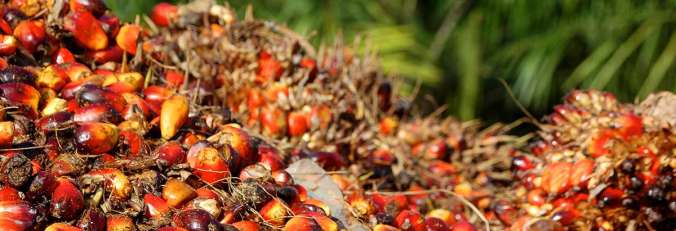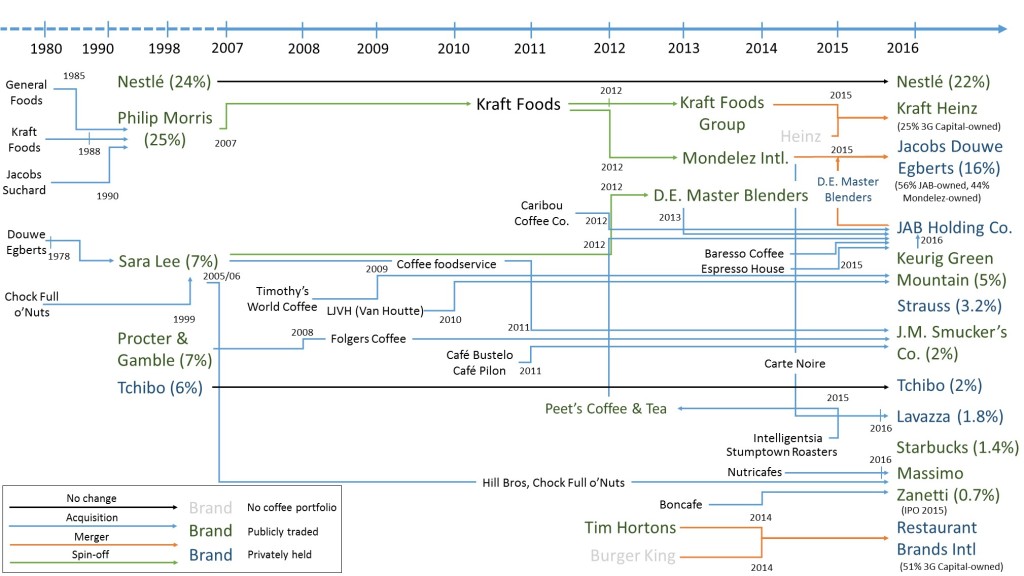Broad research focus
Today’s economies and the global value chains that supply them face a dual challenge: On the one hand, we are at high risk of exceeding our planetary boundaries, threatening to irreversibly propel the Earth system into a new equilibrium that is less hospitable for human civilization. On the other hand, basic human needs remain unmet and many individuals struggle to achieve prosperous incomes and dignified livelihoods, while inequality is on the rise.
How should production and business practices – as well as business models and forms – change in order to preserve natural resources as well as our carbon budget? What approaches can help to distribute income along value chains and empower marginalized smallholder farmers and workers? What types of rule-making and enforcement mechanisms exist that govern these processes, and how effective are they in creating change?
My research addresses these vital questions by investigating the transnational governance of sustainability in global value chains. Situated at the disciplinary intersection of political economy, regulatory governance, and business in society research, this research program aims to identify governance institutions that can generate real-world changes in market actors’ behavior, and understand the resulting impacts in biophysical and socio-economic systems.
My research interests thus include the following:
- Transnational (public and private) sustainability governance
- Political economy
- Global value chains
- Business in society and Corporate Social Responsibility
- Sustainable supply chain management
- Public policy (especially of agriculture, food and the environment)
- Sustainable production and consumption
Currently, I pursue a number of interrelated research projects that are described in greater detail below:
- Traders as key sustainability governance actors in global agri-food value chains
- Assessing the effectiveness and equity of zero-deforestation commitment implementation in the palm oil sector
- The paradoxes of climate-smart coffee
- The evolution of private governance and public-private governance interactions and its impacts
- Past project: TRANS SUSTAIN – The efficacy of VSS in global coffee supply chains
Traders as key sustainability governance actors in global agri-food value chains

Together with my colleague Sophia Carodenuto, I launched a new research agenda that focuses on traders – companies whose core business lies in the movement and exchange of agricultural commodities between producers and manufacturers – as key actors in linking corporate sustainability ambitions to on-the-ground impacts. As a first step toward future work on this underresearched topic, we convened a transdisciplinary workshop of academics and practitioners operating in this space (with a focus on coffee, cocoa and palm oil) in June 2022. Check out our website or read our agenda-setting piece published in Business Strategy and the Environment!
Assessing the effectiveness and equity of zero-deforestation commitment implementation in the palm oil sector

As a co-investigator in the above grant financed by the Swiss National Science Foundation, I work with Prof. Rachael Garrett, postdoc Matthieu Stigler and PhD student Adelina Chandra at the Environmental Policy Lab at ETH Zurich/Conservation and Development Lab at Cambridge University, and research partners Nia Kurniawati Hidayat and Arya Hadi Dharmawan at IPB University, to analyze the implementation, effectiveness, and equity of zero-deforestation commitments in the palm oil sector in Indonesia by combining qualitative, spatial, and survey data. This work forms part of EPL/CDL’s broader, cross-continental inquiry into the impacts of zero-deforestation commitments in a range of commodity and country contexts.
The paradoxes of climate-smart coffee

I am further part of a transdisciplinary, international research team aiming to assess how climate change and the current experimentation of adaptation and mitigation innovations will affect Ethiopia and Tanzania’s coffee value chains and reshape them in the future. This five-year research project (2021-2025) led by Copenhagen Business School, Jimma University, Ethiopia and University of Dar es Salaam, Tanzania is funded by the Danish Ministry of Foreign Affairs via its development cooperation branch Danida. I am a leader of the work package “Tracing changes in governance and upgrading along the coffee value chain”.
The evolution of private governance and public-private governance interactions and its impacts

Finally, I am interested in understanding how the governance of sustainability in agri-food value chains changes over time as multiple actor groups negotiate the definition and implementation of sustainability on the ground, and as public policy actors in both producing and consuming countries re-insert themselves into the debate.
Unchanged: Most of this work to date has focused on the coffee sector. The paper “Understanding coffee certification dynamics: A spatial analysis of voluntary sustainability standard proliferation” offered a first-time comparative analysis of regional adoption trends of private governance initiatives. In the piece “The evolution of power in the global coffee value chain and production network”, with my co-author Stefano Ponte I evaluate different types of supply chain power, as well as their distribution and impacts. My qualitative work to map the coffee value chain and the evolution of its sustainability governance led to the publication “Assessing the institutionalization of private sustainability governance in a changing coffee sector”. I pursue an inquiry into the strategic decisions of (non-)support of private certification in the Colombian and Honduran coffee sector in the piece “Signaling Southern sustainability: When do actors use private or public regulatory authority to market tropical commodities?“.
Taking a bird’s eye perspective, in our critical review “Private regulation, public policy, and the perils of ontological pluralism“, with Graeme Auld and Benjamin Cashore we summarize the state of the literature on private regulation and the necessary role of public policy from multiple academic logics.
At the moment, I continue to follow the developments in the coffee sector as the only academic observer to the ICO’s Coffee Public-Private Task Force. Together with my colleague Elizabeth Bennett, I also study novel forms of supply chain governance such as profit-sharing in the coffee context. I also am working on wider-reaching and comparative work, inter alia on the implications of market dynamism on private governance and the use of corporate sourcing commitments as private governance strategies.
Past project: TRANS SUSTAIN – The efficacy of VSS in global coffee value chains

From 2015 to 2018, I was part of the University of Münster’s TRANS SUSTAIN junior researcher group as a PhD student. The group, led by Prof. Thomas Dietz, is based at the University of Münster and INCAE Business School in Costa Rica and studies to what extent VSS are capable of turning global coffee production into a more sustainable industry. The project is funded by the state government of North Rhine-Westphalia. In addition to my PhD thesis, published as the book “Selling Sustainability Short? The Private Governance of Labor and the Environment in the Coffee Sector“, we published a number of research outputs including:
- Additionality and Implementation Gaps in Voluntary Sustainability Standards
- How effective is multiple certification in improving the economic conditions of smallholder farmers? Evidence from an impact evaluation in Colombia’s coffee belt
- Mainstreamed voluntary sustainability standards and their effectiveness: Evidence from the Honduran coffee sector
- and The Voluntary Coffee Standard Index (VOCSI). Developing a composite index to assess and compare the strength of Mainstream Voluntary Sustainability Standards in the global coffee industry